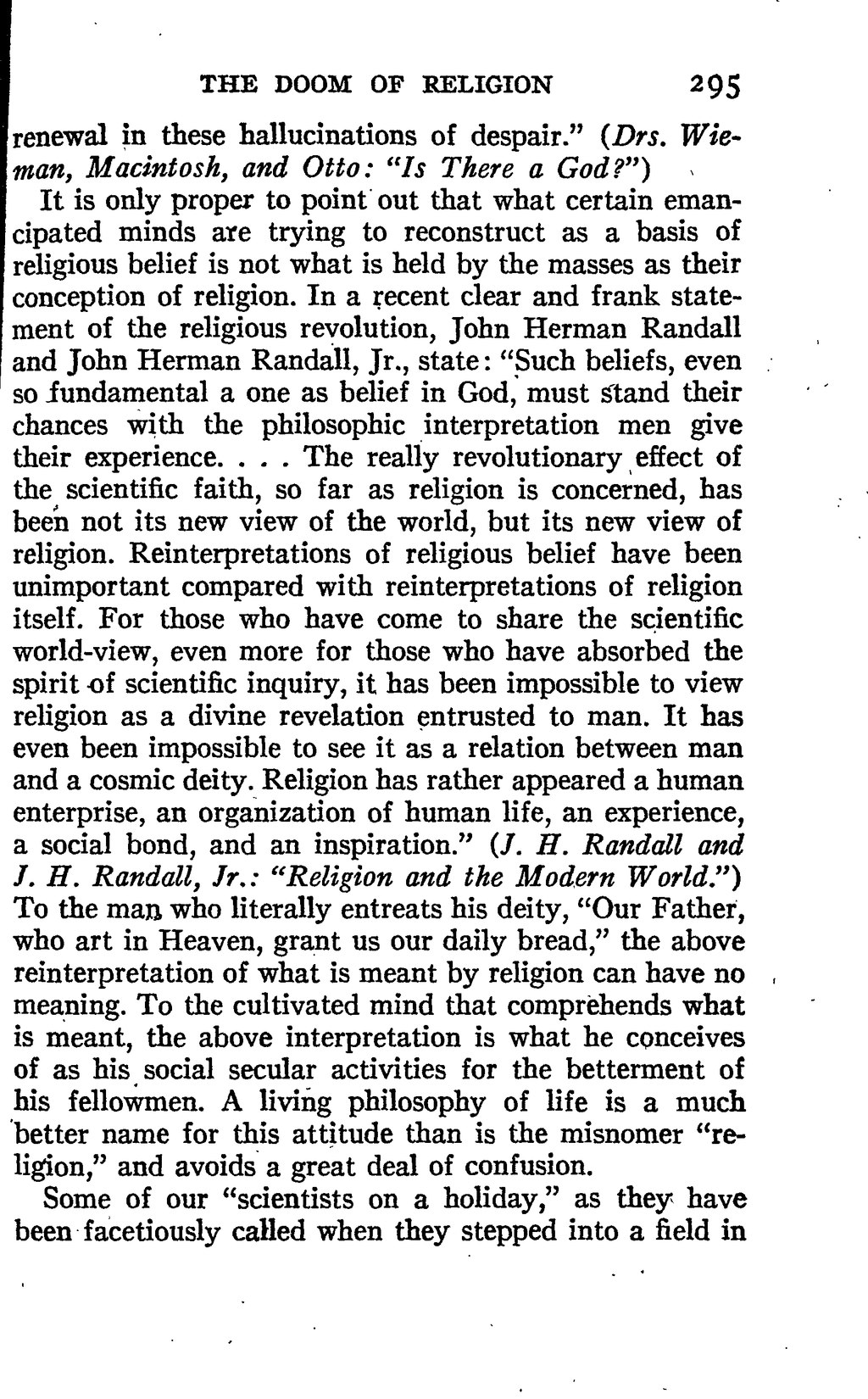renewal in these hallucinations of despair." (Drs. Wieman, Macintosh, and Otto: "Is There a God?")
It is only proper to point out that what certain emancipated minds are trying to reconstruct as a basis of religious belief is not what is held by the masses as their conception of religion. In a recent clear and frank statement of the religious revolution, John Herman Randall and John Herman Randall, Jr., state: "Such beliefs, even so fundamental a one as belief in God, must stand their chances with the philosophic interpretation men give their experience. . . . The really revolutionary effect of the scientific faith, so far as religion is concerned, has been not its new view of the world, but its new view of religion. Reinterpretations of religious belief have been unimportant compared with reinterpretations of religion itself. For those who have come to share the scientific world-view, even more for those who have absorbed the spirit of scientific inquiry, it has been impossible to view religion as a divine revelation entrusted to man. It has even been impossible to see it as a relation between man and a cosmic deity. Religion has rather appeared a human enterprise, an organization of human life, an experience, a social bond, and an inspiration." (J. H. Randall and J. H. Randall, Jr.: "Religion and the Modern World") To the man who literally entreats his deity, "Our Father, who art in Heaven, grant us our daily bread," the above reinterpretation of what is meant by religion can have no meaning. To the cultivated mind that comprehends what is meant, the above interpretation is what he conceives of as his social secular activities for the betterment of his fellowmen. A living philosophy of life is a much better name for this attitude than is the misnomer "religion," and avoids a great deal of confusion.
Some of our "scientists on a holiday," as they have been facetiously called when they stepped into a field in
